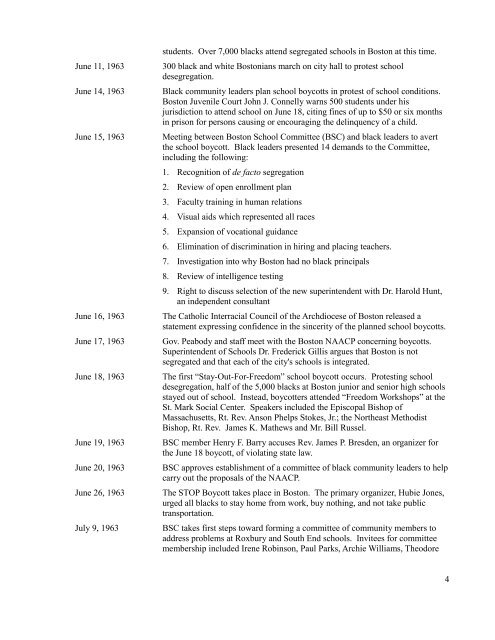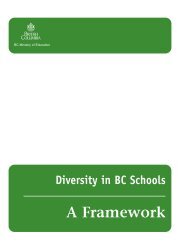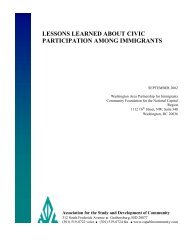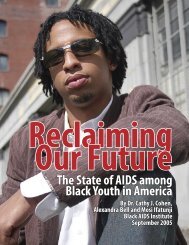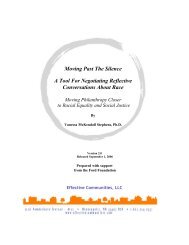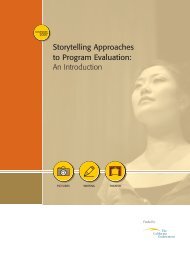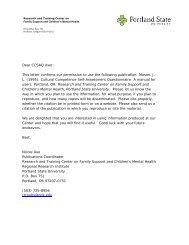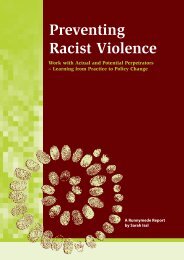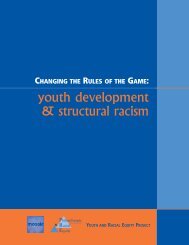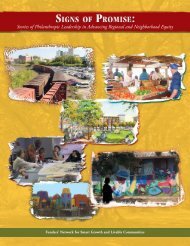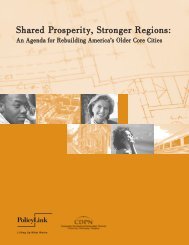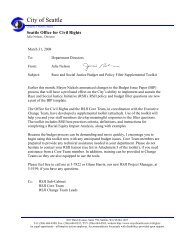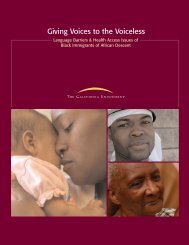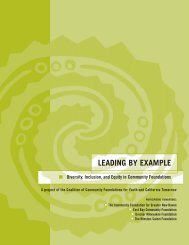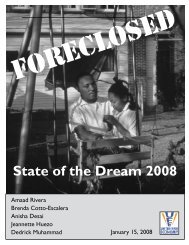A Timeline of Boston School Desegregation, 1961-1985
A Timeline of Boston School Desegregation, 1961-1985
A Timeline of Boston School Desegregation, 1961-1985
You also want an ePaper? Increase the reach of your titles
YUMPU automatically turns print PDFs into web optimized ePapers that Google loves.
June 11, 1963June 14, 1963June 15, 1963June 16, 1963June 17, 1963June 18, 1963June 19, 1963June 20, 1963June 26, 1963July 9, 1963students. Over 7,000 blacks attend segregated schools in <strong>Boston</strong> at this time.300 black and white <strong>Boston</strong>ians march on city hall to protest schooldesegregation.Black community leaders plan school boycotts in protest <strong>of</strong> school conditions.<strong>Boston</strong> Juvenile Court John J. Connelly warns 500 students under hisjurisdiction to attend school on June 18, citing fines <strong>of</strong> up to $50 or six monthsin prison for persons causing or encouraging the delinquency <strong>of</strong> a child.Meeting between <strong>Boston</strong> <strong>School</strong> Committee (BSC) and black leaders to avertthe school boycott. Black leaders presented 14 demands to the Committee,including the following:1. Recognition <strong>of</strong> de facto segregation2. Review <strong>of</strong> open enrollment plan3. Faculty training in human relations4. Visual aids which represented all races5. Expansion <strong>of</strong> vocational guidance6. Elimination <strong>of</strong> discrimination in hiring and placing teachers.7. Investigation into why <strong>Boston</strong> had no black principals8. Review <strong>of</strong> intelligence testing9. Right to discuss selection <strong>of</strong> the new superintendent with Dr. Harold Hunt,an independent consultantThe Catholic Interracial Council <strong>of</strong> the Archdiocese <strong>of</strong> <strong>Boston</strong> released astatement expressing confidence in the sincerity <strong>of</strong> the planned school boycotts.Gov. Peabody and staff meet with the <strong>Boston</strong> NAACP concerning boycotts.Superintendent <strong>of</strong> <strong>School</strong>s Dr. Frederick Gillis argues that <strong>Boston</strong> is notsegregated and that each <strong>of</strong> the city's schools is integrated.The first “Stay-Out-For-Freedom” school boycott occurs. Protesting schooldesegregation, half <strong>of</strong> the 5,000 blacks at <strong>Boston</strong> junior and senior high schoolsstayed out <strong>of</strong> school. Instead, boycotters attended “Freedom Workshops” at theSt. Mark Social Center. Speakers included the Episcopal Bishop <strong>of</strong>Massachusetts, Rt. Rev. Anson Phelps Stokes, Jr.; the Northeast MethodistBishop, Rt. Rev. James K. Mathews and Mr. Bill Russel.BSC member Henry F. Barry accuses Rev. James P. Bresden, an organizer forthe June 18 boycott, <strong>of</strong> violating state law.BSC approves establishment <strong>of</strong> a committee <strong>of</strong> black community leaders to helpcarry out the proposals <strong>of</strong> the NAACP.The STOP Boycott takes place in <strong>Boston</strong>. The primary organizer, Hubie Jones,urged all blacks to stay home from work, buy nothing, and not take publictransportation.BSC takes first steps toward forming a committee <strong>of</strong> community members toaddress problems at Roxbury and South End schools. Invitees for committeemembership included Irene Robinson, Paul Parks, Archie Williams, Theodore4


